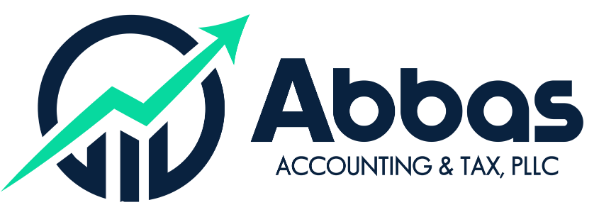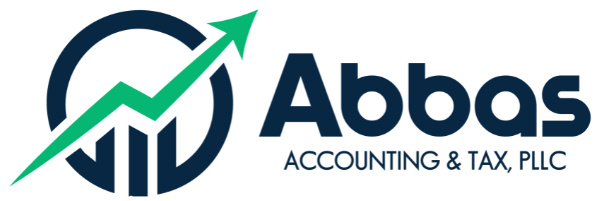Understanding Small Business Tax Deductions in 2025
Small business tax deductions are a top strategy to lower taxable income, improve cash flow, and invest more back into your business. In this updated 2025 guide, discover key write offs, credits, and AI‑driven bookkeeping tools every Texas entrepreneur should leverage.
What Counts as a Small Business Tax Deduction?
A tax deduction is an ordinary and necessary business expense like advertising, travel, and office supplies that reduces your taxable income. Understanding what qualifies can mean thousands in savings for small business owners in 2025.
High‑Value Tax Deductions You Shouldn’t Miss
-
🏠 Home Office & Utilities
Claim the simplified method or actual expenses if your home qualifies as a dedicated workspace. Trending in 2025: deducting smart home office tech and utility increases.
-
💻 Section 179 & Bonus Depreciation
Deduct full equipment and software purchases (up to ~$1.25M in 2025) in the year you acquire them, a powerful tool for small business tax planning.
-
📉 Qualified Business Income (QBI) Deduction
Eligible pass-through entities can claim up to 20% deduction, a high-impact tax saving benefit in 2025.
-
🚗 Business Vehicle & Mileage
Track mileage or actual vehicle costs. Claim up to 65.5¢ per mile in 2025, reduce taxable income while splitting commuting and business use.
-
📊 Professional Fees & Accounting Services
CPA fees, legal advice, and bookkeeping are fully deductible. Integrate AI-powered accounting tools like QuickBooks, Xero, or Expensify to boost efficiency and audit readiness.
-
📢 Marketing, Ads & Online Tools
SEO tools, Google Ads, and website maintenance qualify. Backlink here: our Financial Planning guide covers ROI tracking methods.
-
👥 Employee Benefits & Retirement Plans
Deduct contributions to SEP IRAs, Solo 401(k)s (up to $69K in 2025), health premiums, and WOTC if hiring from targeted groups.
Smart Tips to Maximize Your Deductions
- Track receipts & mileage continuously to avoid missed deductions.
- Use AI bookkeeping tools for real-time categorization and audit-safe records.
- Plan quarterly — don’t wait for year-end. Year-round monitoring drives better results.
- Consult a small business tax accountant near me to uncover less obvious deductions (e.g., NOL carryforwards).
FAQs
Q: Can a CPA do bookkeeping?
A: Yes, but it’s usually more cost-effective to have a bookkeeper handle daily tasks, with a CPA focusing on strategy and tax filings.
Q: Do I need a bookkeeper if I use QuickBooks?
A: Even with tools like QuickBooks or Xero, a professional ensures accuracy, tax-readiness, and compliance, especially when laws change.
Q: Can I deduct personal credit card business expenses?
A: Yes, if you document their business purpose and follow exercise reciprocity in your records.
Q: Are meals fully deductible?
A: Generally 50%, but boosts to 100% apply for in-house staff meals or employer-funded events.
Schedule a free consultation with Abbas Accounting & Tax PLLC
Related Posts

Tax Saving Strategies for Small Businesses in 2025
Discover smart ways to lower your tax liability this year, from deductions to advanced planning techniques.
Read More
Year-End Tax Checklist for Texas-Based Businesses
Use this end-of-year guide to ensure your business wraps up tax season smoothly and maximizes available deductions.
Read MoreEXCELLENTTrustindex verifies that the original source of the review is Google. Haider is an exceptional accountant. His CPA background and exceptional knowledge of the US tax code has been a great asset to my businesses. His work is very clean and thorough, while always making an effort to communicate with me each step of the way. I would highly recommend him for anyone looking to grow their business!Trustindex verifies that the original source of the review is Google. My husband and I can not tell you how grateful we are for Abbas Accounting & Tax. Haider is so helpful and very very knowledgeable. So many of our neighbors recommended him and we are glad we reached out. We now feel confident and actually have an understanding on how we SHOULD fill out our W4 and our taxes. We finally have a trusted tax & accounting expert that we will continue to utilize every year! Thank you!Trustindex verifies that the original source of the review is Google. I had an excellent experience with Abbas Accounting & Tax in Richmond. Their team is professional, knowledgeable, and genuinely cares about helping their clients. Haider Abbas made the process simple and stress-free, providing clear explanations every step of the way. Their expertise saved me both time and money on my taxes. I highly recommend Abbas Accounting & Tax to anyone seeking reliable, trustworthy, and friendly accounting services.Trustindex verifies that the original source of the review is Google. Haider has been incredibly helpful in guiding me through my tax filing process and helping me understand the advantages available to me. He took the time to explain everything clearly, making sure I was informed and confident in my decisions. Beyond just taxes, Haider also provided valuable insights into forming my LLC, helping me structure it in a way that benefits me both financially and legally. His expertise, professionalism, and willingness to go the extra mile truly set him apart.Trustindex verifies that the original source of the review is Google. I've known Haider Abbas for many years, and I can confidently say he is one of the most knowledgeable and trustworthy CPAs out there. He genuinely cares about his clients and takes the time to explain everything in a way that makes sense. Whether it’s tax preparation, accounting, or financial advice, he goes above and beyond to ensure accuracy and maximize savings. His professionalism, attention to detail, and commitment to client success truly set him apart. If you're looking for a reliable CPA who will always have your best interests in mind, especially when tax season is upon us, I highly recommend Abbas Accounting & Tax!Trustindex verifies that the original source of the review is Google. He’s done our taxes for over ten years and has saved us so much money every year. Haider has great knowledge and expertise with the ability to communicate effectively and adapt to our needs. It has been a pleasure working with him for over a decade! Highly recommend.Trustindex verifies that the original source of the review is Google. Best place to get your taxes done. Haider has great knowledge & expertise to handle your business or personal taxes.Trustindex verifies that the original source of the review is Google. Great service. Haider Abbas explains taxes in a simple manner and helps to make sure you are getting your full refund, by knowing the tax laws so well. Would highly recommend to everyone!Verified by TrustindexTrustindex verified badge is the Universal Symbol of Trust. Only the greatest companies can get the verified badge who has a review score above 4.5, based on customer reviews over the past 12 months. Read more



[…] Tax preparation & planning (like deductions & credits) […]
[…] Understanding Small Business Tax Deductions […]
[…] Understanding Small Business Tax Deductions […]
[…] You can choose to be taxed as a sole prop, partnership, or S-Corp. Learn more in our guide on Small Business Tax Deductions. […]